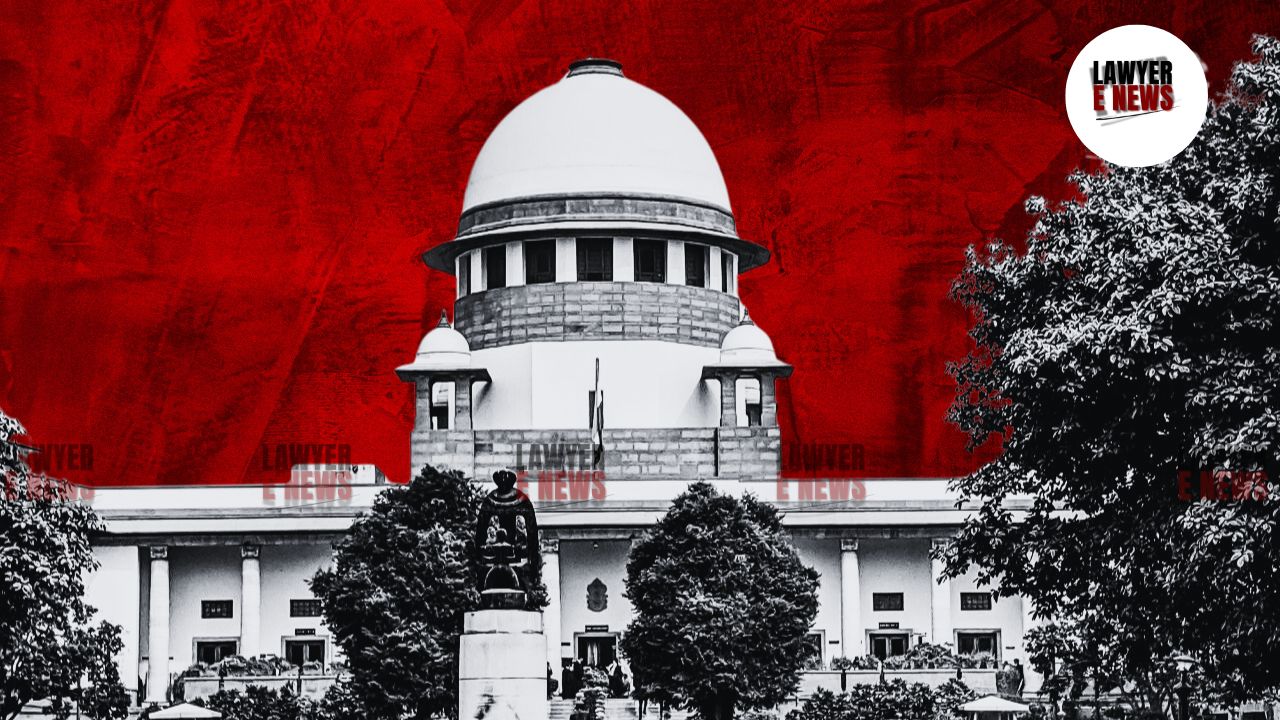-
by Admin
15 February 2026 5:35 AM



In a significant judgment Supreme Court of India dissolved the marriage between petitioner and respondent under Article 142(1) of the Constitution, citing irretrievable breakdown of marriage. The Court also quashed criminal proceedings filed by the petitioner against the respondent and his family and directed the payment of ₹12 crore as permanent alimony to the petitioner. This decision was made against the backdrop of a brief and acrimonious marriage marred by litigation and allegations of cruelty.
The petitioner and respondent married on July 31, 2021, in Pune. Both parties had been previously married, with the respondent having divorced his first wife after 20 years of marriage. The respondent, a U.S.-based IT consultant, alleged that their marital discord arose within months, primarily over his continued involvement with his children, ex-wife, and ailing father. The respondent contended that the petitioner resorted to filing false criminal cases and made unreasonable monetary demands. The petitioner, on the other hand, claimed she was discriminated against and abandoned by the respondent and his family. A series of legal disputes ensued between the parties, which ultimately led the respondent to file an application for divorce on the ground of irretrievable breakdown of marriage under Article 142(1) of the Constitution.
The Supreme Court, after a detailed examination of the facts, noted that the marriage was short-lived and had failed to evolve into a meaningful relationship. The Court observed that the respondent had filed three successive divorce petitions within the first year of marriage, indicating his clear intention not to continue the marital relationship. The petitioner had also filed multiple criminal complaints, including serious allegations under Sections 354, 376, 377, and 498A of the Indian Penal Code and Sections 66 and 67 of the Information Technology Act. These allegations led to the respondent’s arrest at the Mumbai airport based on a Look Out Circular and his subsequent custody for nearly a month. The Court found that such actions had irreparably damaged the relationship between the parties, making reconciliation impossible.
The Court observed that the marriage had become “emotionally dead and unworkable.” It held that the cumulative impact of criminal proceedings, arrests, and prolonged litigation had created a toxic environment, leaving no possibility of the couple resuming cohabitation. The Court emphasized that forcing the parties to remain in a broken marriage would only prolong their suffering and upheld its discretion under Article 142(1) to dissolve the marriage, stating, “Since there is no acceptable way in which a spouse can be compelled to resume life with the other, nothing is gained by trying to keep the parties tied to a marriage that, in fact, has ceased to exist.”
While dissolving the marriage, the Supreme Court addressed the issue of permanent alimony. The petitioner had sought alimony on par with the settlement received by the respondent’s first wife, alleging that the respondent’s net worth exceeded ₹5,000 crores. The respondent, however, argued that the short duration of the marriage and the petitioner’s existing assets and income did not justify such exorbitant demands. The Family Court in Pune, which had earlier been directed by the Supreme Court to assess alimony, recommended a lump sum of ₹10 crore or ₹2 lakh per month. After considering the petitioner’s financial situation and the need to provide for her future, the Supreme Court enhanced the amount to ₹12 crore, directing the respondent to pay it within one month. The Court clarified that this amount was a full and final settlement of all claims, rejecting the petitioner’s demand for equalization of wealth with the respondent.
The Court also directed the petitioner to vacate two properties belonging to the respondent’s father, one in Pune and the other in Bhopal, within two months of receiving the alimony amount. It held that the petitioner could not claim a right to residence in properties not owned by the respondent, especially when she owned a residential flat in Pune, which she had rented out.
Further, the Supreme Court quashed all criminal proceedings filed by the petitioner against the respondent and his family, observing that the allegations were not substantiated and had caused undue harassment. The Court expressed concern over the misuse of stringent criminal provisions like Sections 498A, 376, and 377 of the IPC in matrimonial disputes, stating that such actions often exacerbate conflicts and make reconciliation impossible. It noted, “The provisions of criminal law, while intended to protect women, are sometimes misused as tools for personal vendetta. This misuse causes irreparable damage to relationships and highlights the need for caution in invoking stringent legal provisions.”
The Court concluded by emphasizing the need for parties to approach marital disputes with sensitivity and a focus on resolution rather than hostility. It reiterated that the extraordinary powers under Article 142(1) are meant to ensure complete justice and are exercised only in exceptional cases where the facts clearly demonstrate the impossibility of reconciliation. In this case, the Court found that the continuation of the marital relationship was unjustified and dissolved the marriage to allow both parties to move forward independently.
The judgment underscores the Supreme Court’s broad discretion under Article 142(1) to address unique and complex matrimonial disputes, balancing the need for justice with the principles of fairness and equity.
Date of Decision: December 19, 2024
